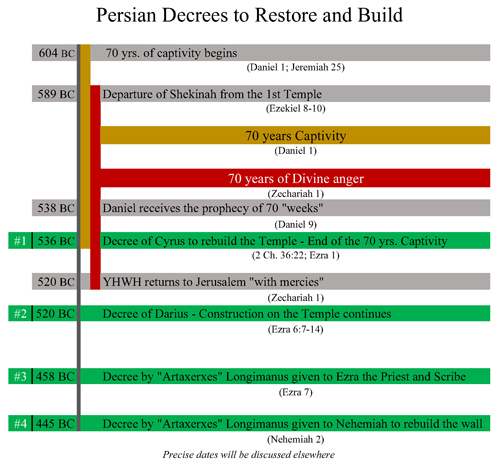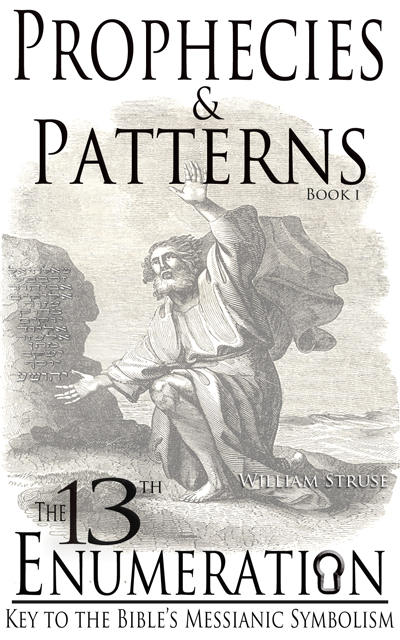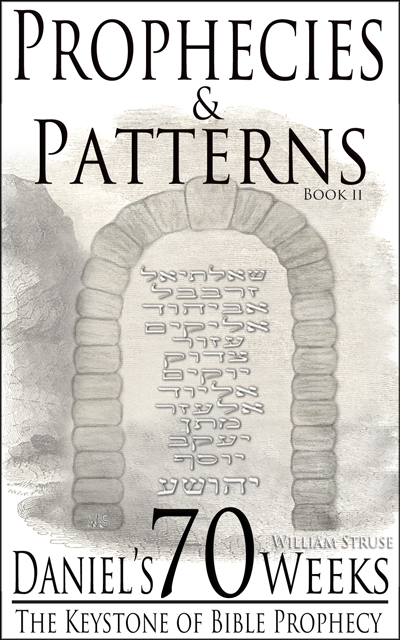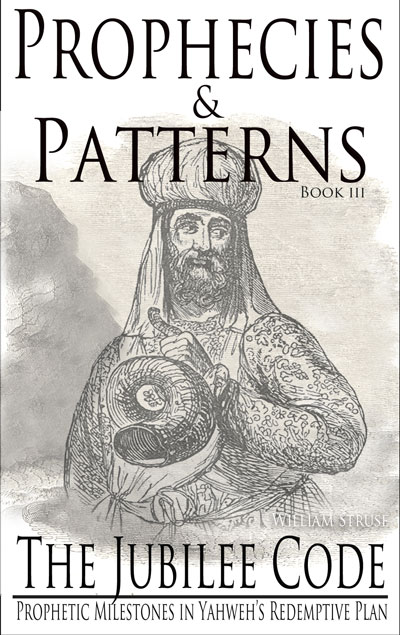So who gave the commandment which began the countdown to the Messiah mentioned in Daniel 9:25? In last weeks post A Divine “Command” to Return and Build Jerusalem we asked whether this commandment was of men or God. Scholars have long held that there were four Persian decrees or commandment which might qualify. In this weeks post we will look at the first of four Persian rulers who have been deemed the person who gave the “commandment” of Daniel 9:25.
“That saith of Cyrus, He is my shepherd, and shall perform all my pleasure: even saying to Jerusalem, Thou shalt be built; and to the temple, Thy foundation shall be laid.”
Isaiah 44:28
We begin our search for the “commandment” of Daniel 9:25 with Cyrus the Great of Persia, founder of the Achaemenid Empire. It is believed by some scholars that it was Cyrus’s viceroy or general, Darius the Median, who is mentioned in Daniel 5:31. If you recall, this Darius conquered Babylon on that infamous night when Belshazzar, king of Babylon, asked Daniel to read the “handwriting on the wall.”
Although Cyrus ruled his empire for nearly twenty years before conquering Babylon, Ezra 5 counts Cyrus’s first year from the point when he became “king of Babylon” in approximately 536 BC. This type of provincial reckoning of secular kings is quite common in the Bible. Cyrus died about seven years later in 530 BC. His son Cambyses II ruled in his place. Some scholars place Cyrus’s first year as king of Babylon in 538 BC. For the purpose of our investigation of Daniel 9, either date will suffice.
Historians consider Cyrus an especially notable figure in ancient history. One of his greatest achievements was organizing his empire into satrapies, which allowed him to rule efficiently. Cyrus was well respected by those he conquered and ruled, and in many cases his subjects did not consider him their enemy but instead extolled him as a great leader. During his reign Cyrus encouraged religious diversity in his kingdom by allowing those he ruled to worship as they chose, even to the point of helping them restore their religious monuments. As is recorded in the Bible, Cyrus encouraged the Jewish people to build their temple to YHWH. Cyrus is the only secular ruler in the Bible to be called YHWH’s “anointed” or messiah (Isaiah 45:1).
Cyrus’s decree allowing the Jewish people to return and build Jerusalem and the temple ended the 70 years of Babylonian captivity. Here is the biblical record of that event:
Now in the first year of Cyrus king of Persia, that the word of YHWH spoken by the mouth of Jeremiah might be accomplished, YHWH stirred up the spirit of Cyrus king of Persia, that he made a proclamation throughout all his kingdom, and put it also in writing, saying, Thus saith Cyrus king of Persia, All the kingdoms of the earth hath YHWH God of heaven given me; and he hath charged me to build him an house in Jerusalem, which is in Judah. Who is there among you of all his people? YHWH his God be with him, and let him go up. (2 Chronicles 36:22–23)
But in the first year of Cyrus the king of Babylon the same king Cyrus made a decree to build this house of God. (Ezra 5:13, emphasis mine)
That saith of Cyrus, He is my shepherd, and shall perform all my pleasure: even saying to Jerusalem, Thou shalt be built; and to the temple, Thy foundation shall be laid. Thus saith YHWH to his anointed, to Cyrus, whose right hand I have holden, to subdue nations before him; and I will loose the loins of kings, to open before him the two leaved gates; and the gates shall not be shut. (Isaiah 44:28–45:1, emphasis mine)
There are several things about this proclamation or decree that are worth mentioning. First, the term “proclamation” used in 2 Chronicles 36:22 is the Hebrew word qol-abar, which comes from sound or voice (qol) and pass over (abar), hence “proclamation.” In Ezra 5:13, this proclamation is called a decree, which comes from the Aramaic te’em for decree, judgment, or command. This does not have quite the same essence as dabar, or word.
Second, as many scholars are quick to point out, the decree by Cyrus primarily concerned rebuilding the temple, as found in 2 Chronicles 36 and Ezra 5. Only in Isaiah 44 is the city of Jerusalem mentioned in the context of building the temple. I think it only fair to counter that some event had to mark the de facto event of rebuilding Jerusalem. If reconstruction of the temple does not qualify as such an event, I can think of few others that would! A close reading of Isaiah 44:28–45 above does indeed indicate that building the temple was equated with “building Jerusalem.”
Third, not to be overlooked is that Cyrus’s decree is the only one of the four decrees given while the Jewish people were still under a cloud of divine anger. In the chart above you can see that YHWH’s divine anger did not end until the second year of Darius ‘the Great’, a full sixteen years after 536 BC.
There are several points that make this decree worth considering as a fulfillment of Daniel 9:25 and several that do not.
Testing the First Decree
How does this commandment or decree given by Cyrus to the Jewish people stand in light of our four questions regarding the prophecy of Daniel 9:25?
- Could this commandment be considered a dabar or word to return and build Jerusalem?
- Did this commandment cause the Jewish people to shuwb (return or turn back) and build Jerusalem?
- Was this building event of enough relevance to constitute building Jerusalem?
- Can the date of this commandment be firmly established in the biblical and secular record?
Positives:
- This was a decree to rebuild the temple and Jerusalem.
- The decree comes at a pivotal point in biblical history.
- Cyrus is one of the most respected secular leaders in the Bible.
- The date for Cyrus’s decree is given in the Bible.
Negatives:
- The Jewish people were still under YHWH’s divine anger when Cyrus’s decree was given.
- A decree or proclamation doesn’t have the same essence as a dabar or word.
- This decree does not fully satisfy the essence of the word shuwb, to return or turn back to something already begun.
- Cyrus’s decree was given in 536 BC and makes a reasonable first-century messianic fulfillment of the prophecy using the 70 sevens difficult if not impossible, because it is hard to see how 70 sevens or 490 periods of time can be stretched from 536 BC to most commonly accepted dates for Christ’s birth (4–1 BC), and especially so for His death and resurrection (29–33 AD). It’s a difference of some forty to eighty years, a little too far for comfort.
As you can see, there are some good reasons to consider Cyrus’s decree as a fulfillment of Daniel 9:25, but there are also some difficulties with this position—most notably the misalignment with the first century. For the moment, let’s consider it a draw and move on to the next candidate for the decree that begins our countdown to the Messiah. To the auspicious year of 520 BC and the Persian Darius ‘the Great’, son of Hystaspes, we will turn our attention in next weeks post.
* * *




